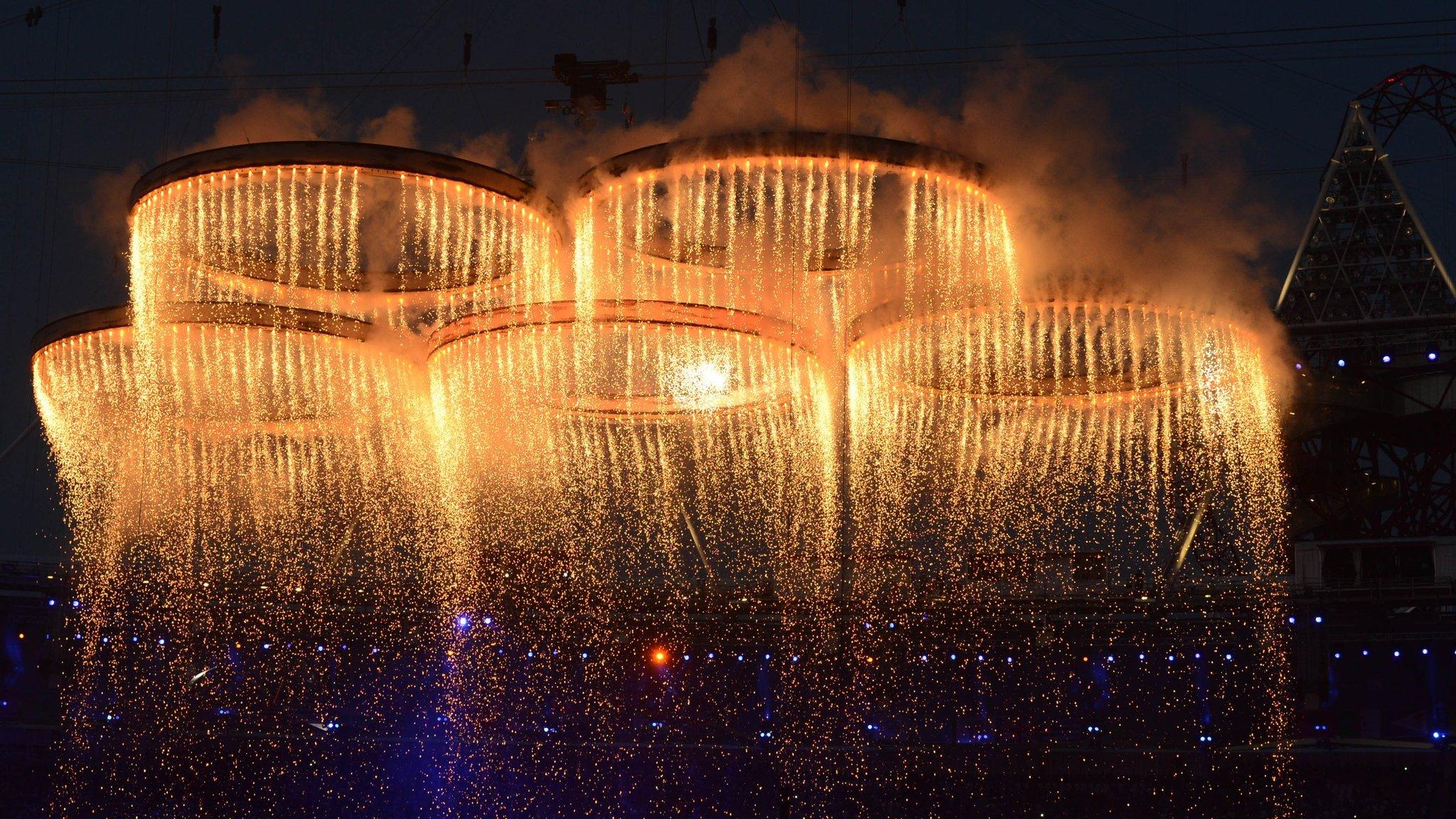Wada has 'full confidence' in McLaren report despite 'discrepancies'
- Published
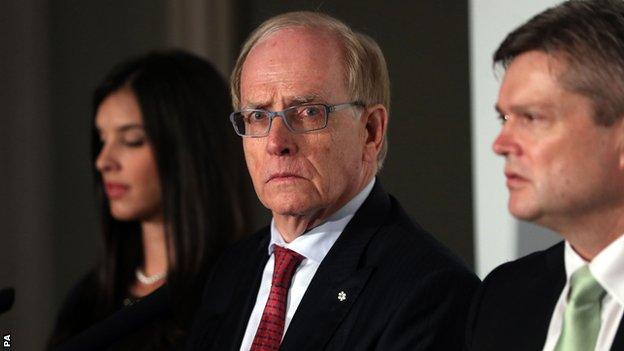
The report's author, Richard McLaren (centre), said doping took place on "an unprecedented scale"
The World Anti-Doping Agency (Wada) says it still has "full confidence" in a report into Russian doping despite "discrepancies" in the supporting evidence.
The report claimed more than 1,000 Russians benefitted from a state-sponsored doping programme.
It heightened calls for the country to be banned from hosting major events.
But Wada's legal team has written to sports' international federations to inform them of "certain discrepancies".
The independent study, by lawyer Richard McLaren, said the doping was across 30 sports from 2011 to 2015.
When the report was unveiled in December, investigators also published a searchable database of their evidence.
In the letter, sent last month and obtained by BBC Sport, Wada's lawyers said: "It has come to our attention that there are, on occasion, certain discrepancies within the evidentiary summaries of athletes that potentially benefited from sample manipulation and the evidence available on the evidence disclosure package website made available by Professor McLaren."
It continued: "Due to a technical malfunction, Wada has been made aware that certain athlete code references have been misattributed by the team - e.g. we have seen situations where an athlete code reference was attributed to a certain athlete in sport X while it should have been attributed to another athlete in sport Y."
Russia doping crisis in 60 seconds
In December, McLaren described the evidence in his 144-page report as "immutable and conclusive", adding to pressure on the International Olympic Committee (IOC) to ban the country from major competitions. Some 1,666 pieces of proof, including emails, documents and forensic analysis of doping samples, were published.
The findings corroborated much of an initial report last year which investigated claims of elaborate sample manipulation made by Grigory Rodchenkov, a former director of Russia's national anti-doping laboratory in Moscow.
McLaren did not identify athletes who have yet to be punished - referring instead to unique sets of numbers - but made the information available to the IOC and sports federations so they pursue individual cases, and decide on sanctions.
Any issues with the evidence could lead to concerns that some legal cases may be challenged by Russian athletes or authorities. Last month, 22 Russian biathletes, who had been suspected of doping following the publication of the second McLaren report, were cleared of any suspicion by the International Biathlon Union.
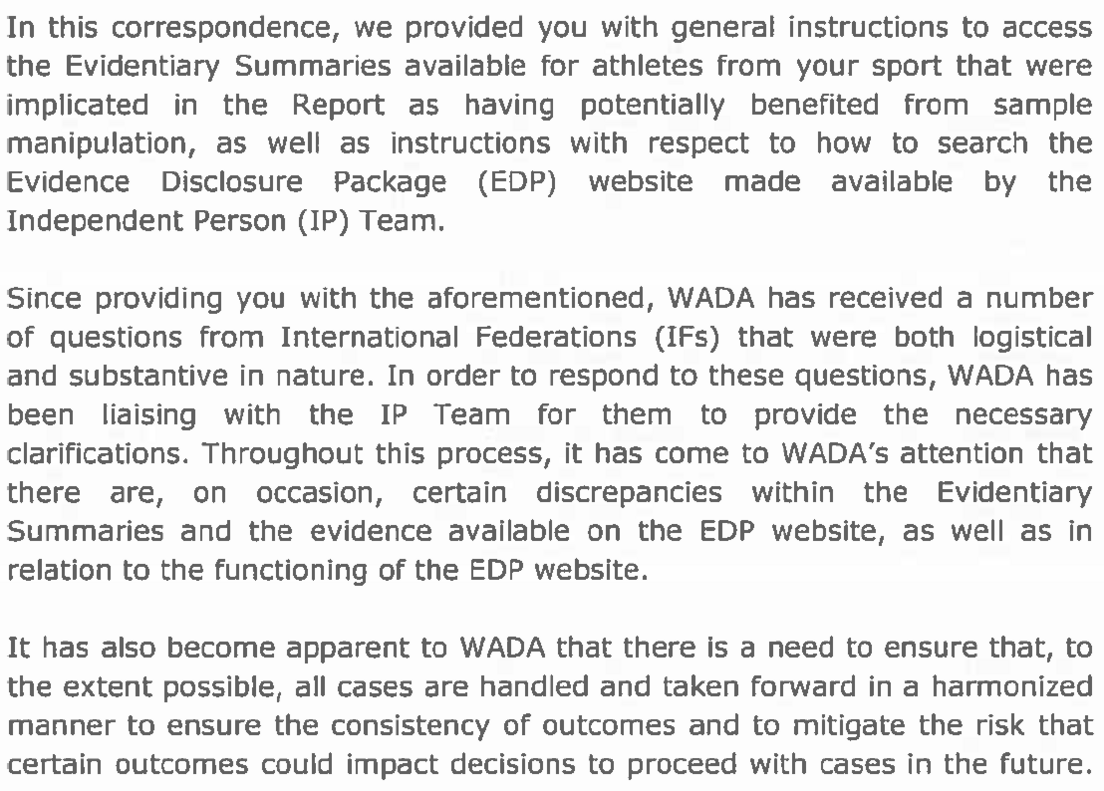
A section of the letter from Wada obtained by BBC Sport
However, in a statement, Wada told the BBC: "The purpose of the recent correspondence was to provide clarification regarding minor logistical discrepancies that were picked up and brought to our attention. These discrepancies - which related to typos regarding names and sample numbers and a technical malfunction with the evidence disclosure package website - were swiftly resolved. As of today, Wada is unaware of any outstanding issues.
"Wada's legal team continues to work with the international federations, assisting them with analysing and interpreting the report and extensive evidence available so that doping cases can be managed in a harmonized manner.
"Wada retains full confidence in the evidence-based findings brought forward by Professor McLaren's investigation."
- Published1 February 2017
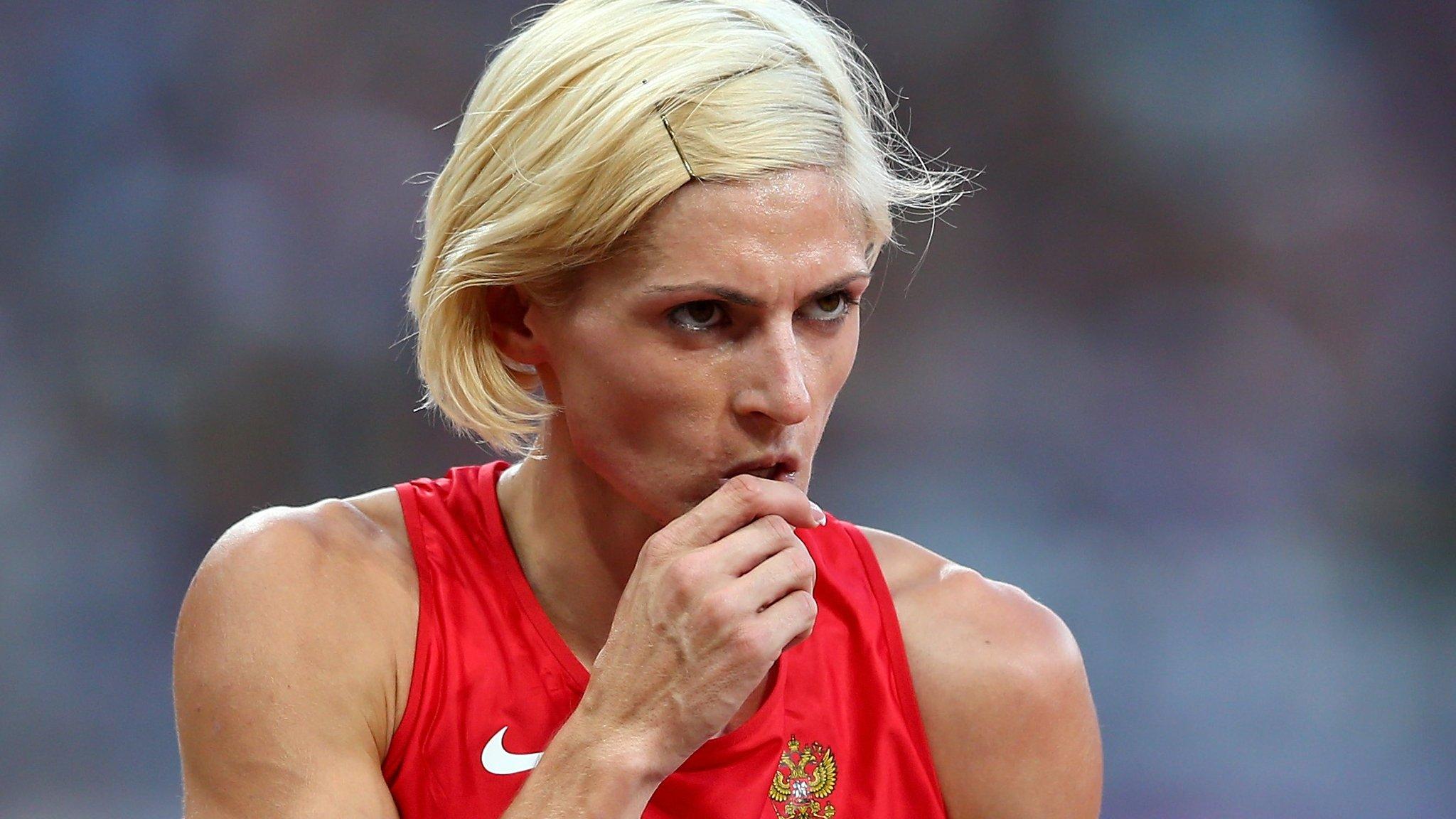
- Published26 January 2017
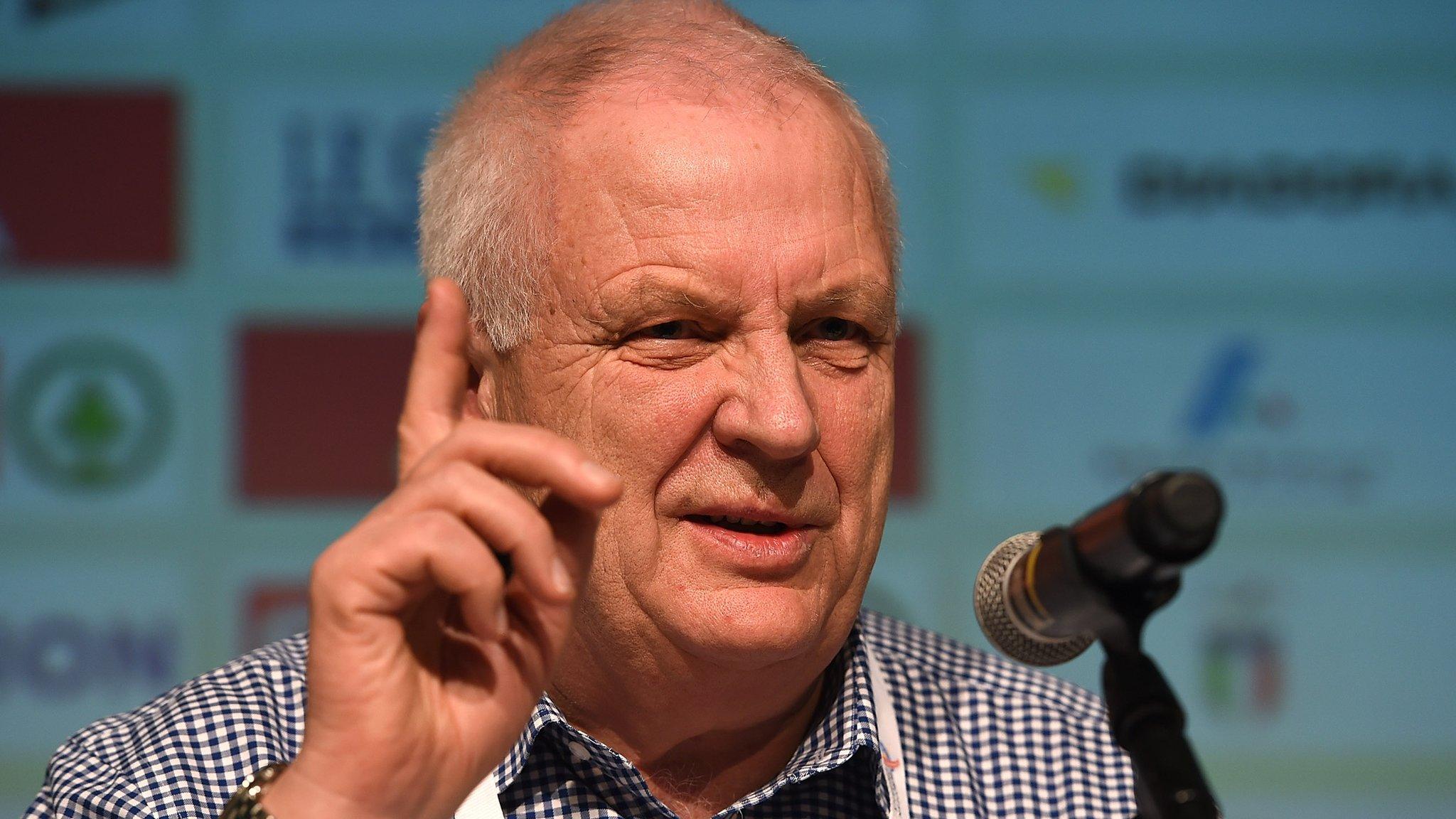
- Published9 December 2016
